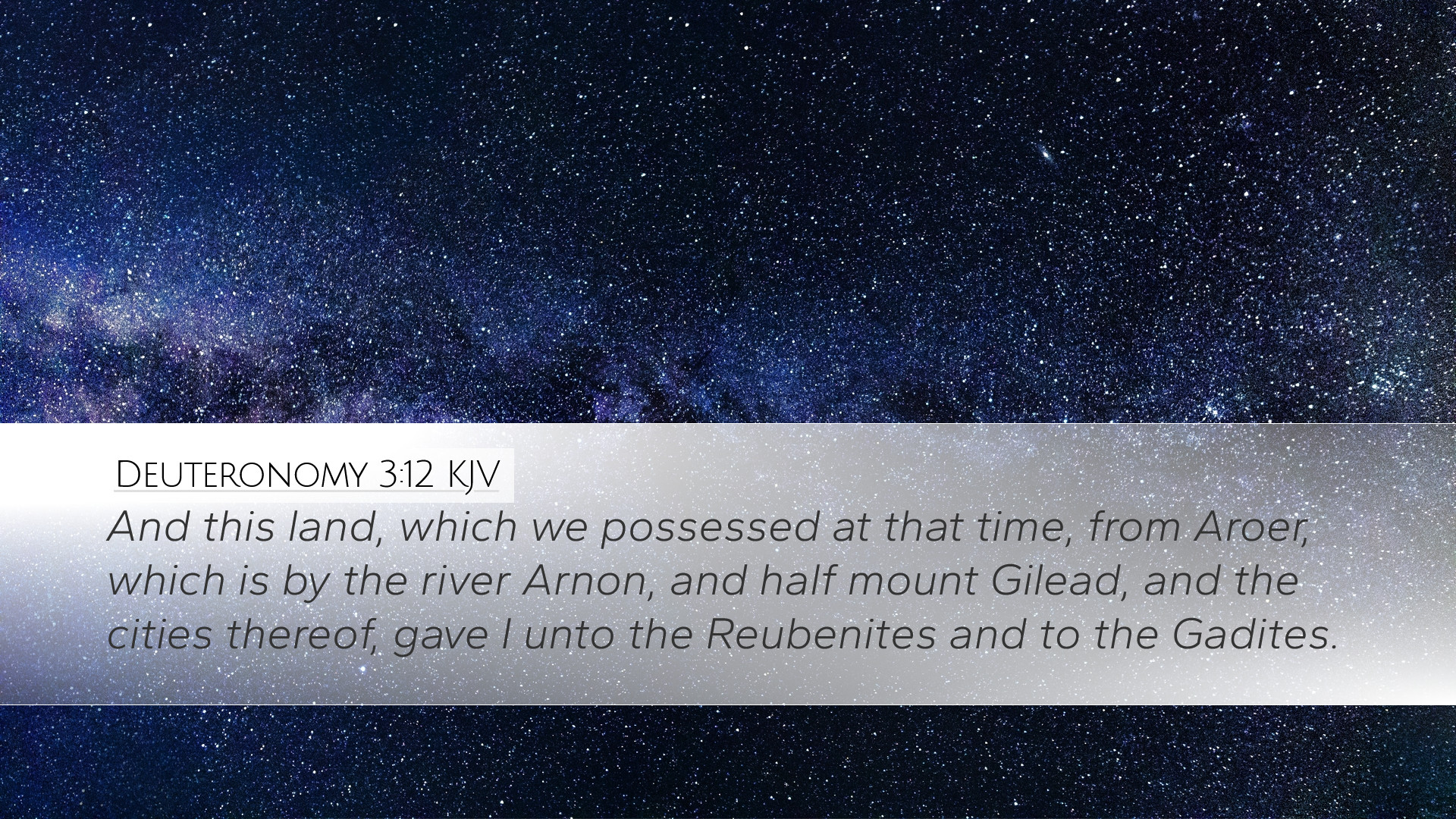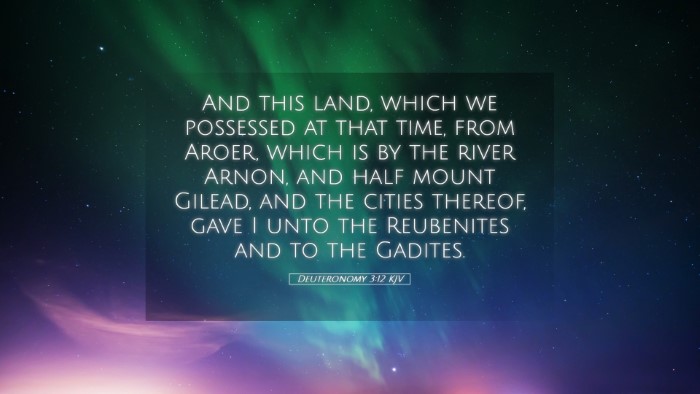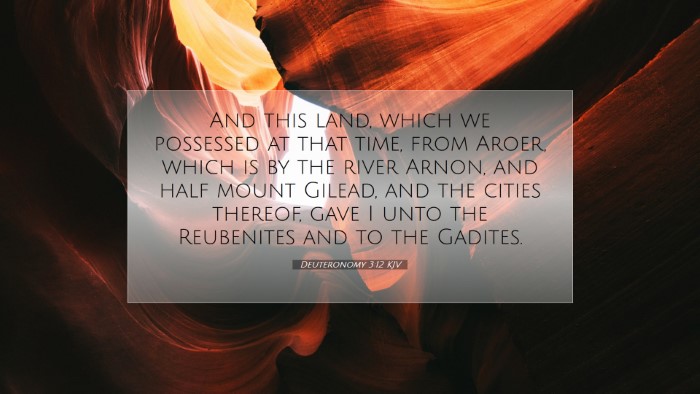Commentary on Deuteronomy 3:12
Verse Context: Deuteronomy 3:12 states, “And this land, which we possessed at that time, from Aroer, which is by the river Arnon, and half mount Gilead, and the cities thereof, gave I unto the Reubenites and to the Gadites.” This verse occurs within a larger context where Moses recounts the conquests and territorial distributions that occurred as the Israelites approached the Promised Land.
Historical Context
The backdrop of Deuteronomy is critical to understanding this verse. Moses addresses the Israelites as they prepare to enter Canaan, reviewing their heritage, laws, and the lands recently conquered from the Amorite kings. This moment reveals God’s providence and faithfulness in fulfilling His promises to the patriarchs.
Commentary Insights
Matthew Henry's Perspective
Territorial Distribution: Henry emphasizes that the allocation of land to the Reubenites and Gadites symbolizes God’s provision for His people. This land was not merely a prize of conquest but a testimony to God's faithfulness in fulfilling His covenant promises. He notes that the mention of specific locations, like Aroer and Gilead, provides historical touchpoints that affirm God's guidance in the journey of Israel.
Spiritual Significance: According to Henry, the land given to these tribes serves as a reminder that spiritual blessings are often accompanied by physical provisions. The choice of land reflects each tribe's unique calling and responsibility, highlighting that God equips His people according to their needs and assignments.
Albert Barnes' Commentary
Geographical Importance: Barnes draws attention to the geographical descriptions—Aroer, the river Arnon, and mount Gilead—as significant markers of the Lord's victories and the strategic importance of these territories. These areas not only served a military purpose but allowed for sustained habitation and agriculture, which were critical for life in the Promised Land.
Divine Guidance: He notes that this allocation represents a divine arrangement. God’s direction in supplying the needs of the various tribes demonstrates His sovereignty and intimate involvement in the lives of His people. This illustrates a theological principle: God directs our paths and provides even as we fulfill our destinies.
Adam Clarke's Analysis
Symbol of Fulfillment: Clarke references this verse in light of God's faithfulness to fulfill His promises. The land granted to the Reubenites and Gadites is viewed as a part of the larger fulfillment of God’s promise made to Abraham, Isaac, and Jacob. Clarke remarks that such territorial allocations consolidate the idea that God’s promises are not only spiritual but also tangible and physical.
Lessons on Responsibility: Clarke also underscores the responsibilities that come with the blessings. The tribes receiving this land were expected to conduct themselves faithful to God’s law and to ensure the prosperity of the land. Their prosperity depended upon their obedience to God’s commands, thus linking territory and morality.
Theological Reflections
Covenantal Faithfulness: The theologians interpret this verse within the broader framework of God's covenant with Israel. Each act of provision and land allocation reinforces the thematic elements of covenant and faithfulness throughout Scripture. The land represents more than just a physical space; it signifies a place where God's presence would dwell and where His people would worship Him.
Practical Applications for Today
- Understanding Divine Provision: Just as the land was God's gift to the tribes, everything we possess is ultimately a gift from God. Reflecting on this truth can cultivate gratitude and stewardship in our lives.
- Responsibility in Blessings: The Israelites’ responsibilities serve as a reminder that blessings come with expectations. Believers are called to manage responsibly what God has entrusted to them, whether it be resources, time, or relationships.
- Faithfulness to God's Call: The distinctions among the tribes remind believers that God equips each person differently according to His purposes. Understanding one’s calling and pursuing it faithfully can lead to flourishing in personal and community life.
Conclusion
The examination of Deuteronomy 3:12 through the lenses of notable biblical commentators reveals a rich tapestry of meaning regarding God's provision, covenant faithfulness, and the responsibilities that accompany His blessings. Pastors, students, theologians, and scholars can draw from these insights as they explore the relevance of this scripture in their spiritual lives and communal engagements. As the Israelites embraced their inheritance, so too are believers called to embrace the entirety of God's gifts and the responsibilities that accompany them.


